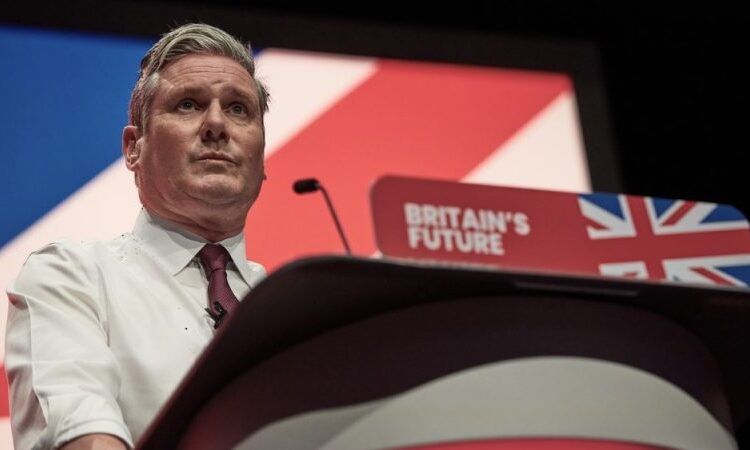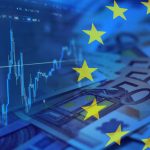
A Labour victory in the UK general election on Thursday (4 July) could foster greater levels of trust and closer economic ties with the EU – but is unlikely to restore pre-Brexit integration, as policy divergence looks set to remain a longer-term reality, experts say.
Sir Keir Starmer’s party, poised to record a historic landslide victory, has repeatedly called for a “reset” in UK-EU relationships – severely damaged by the shock Brexit vote in 2016 and subsequent withdrawal negotiations.
The party’s manifesto pledges to “improve the UK’s trade and investment relationship with the EU by tearing down unnecessary barriers to trade”.
Much like the Conservative party, however, Labour has categorically ruled out the UK’s re-entry into the single market or customs union and any deal that would allow citizens to move freely within the EU.
“The really big things are off the table,” Jim Brunsden, head of the macropolitical team at FleishmanHillard Brussels, told Euractiv. “That gets you down to the next tier of what you can do, which is still meaningful. But it’s not like there are any obvious low-hanging fruits.”
Brunsden explained that past efforts to reach an agreement on animal health and food safety, for instance, have floundered due to the EU’s insistence on a “Swiss-style” agreement, whereby regulatory standards are closely aligned, while the UK prefers a lighter deal modelled on the bloc’s trade agreement with New Zealand.
“One of the continual problems with Brexit has been the UK having a conversation with itself without thinking enough about what the EU might be prepared to accept,” he said.
Nevertheless, Brunsden noted that Labour’s more positive attitude towards the EU could foster greater trust between London and Brussels, which might help resolve more technical trade-related disputes.
“There are going to be situations where potential trade disputes arise – and trust between the two sides is going to matter,” he said.
Philipp Lausberg, an analyst at the European Policy Centre, added that the UK’s weak economic performance post-Brexit could also induce Starmer to seek closer economic ties with Europe over the coming years.
“There will be a more cooperative spirit [if Starmer is elected],” he told Euractiv.
“I think the real steps will not follow immediately, but… since Brexit is really an obstacle that prevents the UK from growing significantly, I could imagine that in a few years, there will be a significant rapprochement in economic terms.”
In the meantime, trade relations between the UK and the EU post-Brexit remain close but are markedly asymmetric.
In a report published last month, UK in a Changing Europe, a London-based think tank, found that the UK accounted for just 10.1% of the EU’s total trade in goods in 2023. Conversely, the EU was responsible for 51.8% of the UK’s total trade—the highest proportion since 2008.
The report also noted that Brexit has created “unavoidable economic realities” that significantly constrain the relationship – including, most notably, the UK’s non-membership of the single market and customs union, which, according to some estimates, has permanently depressed the UK’s GDP by 5%.
Notably, the report stated it would be “hard to imagine any electoral result, in Brussels or Westminster, that will radically shift the dial on UK-EU relations in the coming years.”
However, Lausberg expected that longer-term political considerations – with Labour voters overwhelmingly pro-EU – would encourage Starmer to seek closer cooperation with Europe.
“I believe it’s very important for Starmer not to forget that the vast majority of his electorate is pro-EU, and he cannot ignore that in the long run,” he said – adding the Labour leader may “just playing it safe for now.”
Will greater regulatory alignment ever be feasible?
BusinessEurope, an influential lobby group representing European companies and employers, expressed its hope that the UK and EU elections—as well as the recent EU elections—could be used “as opportunities to renew the partnership and look at new areas of cooperation” between the two blocs.
The group added that it would like to see “more regulatory cooperation on key industrial sectors”, including the automotive, chemicals, and pharmaceuticals sectors.
However, Niclas Poitiers, a research fellow at EU policy think-tank Bruegel, warned that a piecemeal approach to regulatory alignment would likely not go very far, given Brussels’ status as a “regulatory superpower” as well as its general hostility towards regulatory “cherry-picking”.
“If the new UK government says: ‘We’re willing to consider a customs union,’ then maybe we’re talking,” he said.
“But [if it’s] just a small change here or there, there will always be the accusation of cherry-picking.”
Poitiers also emphasised that the EU’s priorities now largely lie elsewhere than in mending relations with the UK – with the war in Ukraine, China’s growing economic dominance, and the possible return of Donald Trump to the White House being EU policymakers’ main concerns.
At the same time, he cautioned, escalating geopolitical tensions between the US, the EU, and China could severely impact the UK economy in the short- to medium term.
“We’re going to see is that being a small economy or even a medium-sized economy in the year 2024, and probably next year, is going to be really tough geopolitically,” he said.
[Edited by Anna Brunetti/Alice Taylor]







